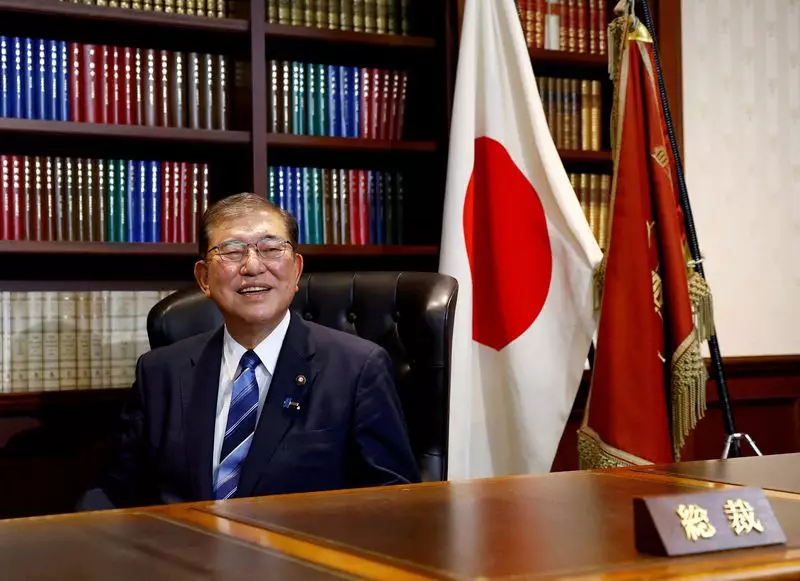As Japan gears up for the leadership of Shigeru Ishiba, significant questions arise surrounding the country’s monetary policy. Ishiba’s recent statements signal a potential shift in economic strategy at a critical time when Japan grapples with fragile recovery dynamics. Historically a critic of the robust policies executed by the Bank of Japan (BOJ), Ishiba’s comments suggest a willingness to cooperate with existing financial frameworks while accommodating a climate of economic caution.
In light of ongoing economic challenges, Ishiba has made it clear that accommodating monetary policy remains a priority. He emphasized to the public broadcaster NHK that while the BOJ is responsible for achieving price stability, any policy shifts would ideally align with the overarching governmental approach. This indicates an understanding of the delicate balance between maintaining growth and addressing inflationary pressures.
His stance implies recognition of the economic landscape, where maintaining low borrowing costs can serve as a lifeline for both businesses and consumers struggling with rising living costs. As previous aggressive monetary easing measures have garnered significant public and political scrutiny, his approach underscores the need for a recalibrated but steadfast monetary policy.
In tandem with monetary policy, Ishiba’s proposed fiscal strategies are aimed at alleviating the economic burden on vulnerable populations. His commitment to introduce measures focused on low-income households signifies an awareness of the socio-economic divides exacerbated by inflation and rising living expenses. This dual-focus on both monetary and fiscal policies highlights his intention to create a more equitable economic environment.
With the world’s attention on how Japan navigates its economic recovery, consisting of a comprehensive fiscal package could enhance confidence in Ishiba’s leadership. His approach resonates particularly in times of perceived volatility, reiterating the need for responsible governance.
Despite his promise to keep monetary policy broadly loose, Ishiba appears to straddle the fence when it comes to interest rate adjustments. The recent historical shift by the BOJ ending negative interest rates and incrementally raising borrowing costs puts Ishiba’s administration in a challenging position. Maintaining cooperation with the BOJ while advocating for a policy that mitigates risks associated with consumption requires nuanced management.
There is an underlying concern regarding how effectively Ishiba can translate these plans into actionable policies without facing backlash from critics of traditional monetary frameworks. As he embarks on this leadership journey, observers will undoubtedly scrutinize whether his fiscal initiatives and support for accommodative monetary policies can deliver tangible results for the Japanese economy.
As Shigeru Ishiba prepares to take on the role of prime minister, the economic direction he sets will be closely monitored. His advocacy for a balanced approach, mixing crucial elements of both fiscal and monetary policies, is not only essential for addressing immediate economic pressures but will also help define his legacy in Japan’s political landscape. While the road ahead is fraught with challenges, his strategic vision may provide the framework needed for sustainable recovery in the coming years.

